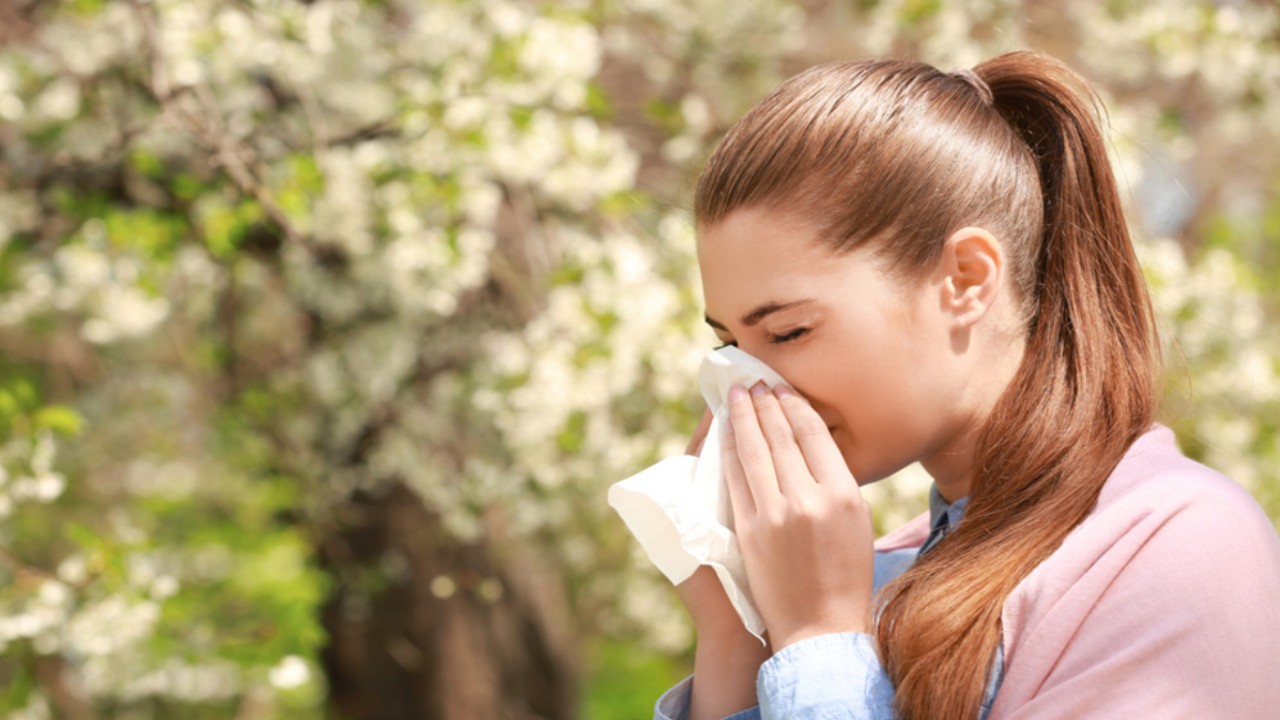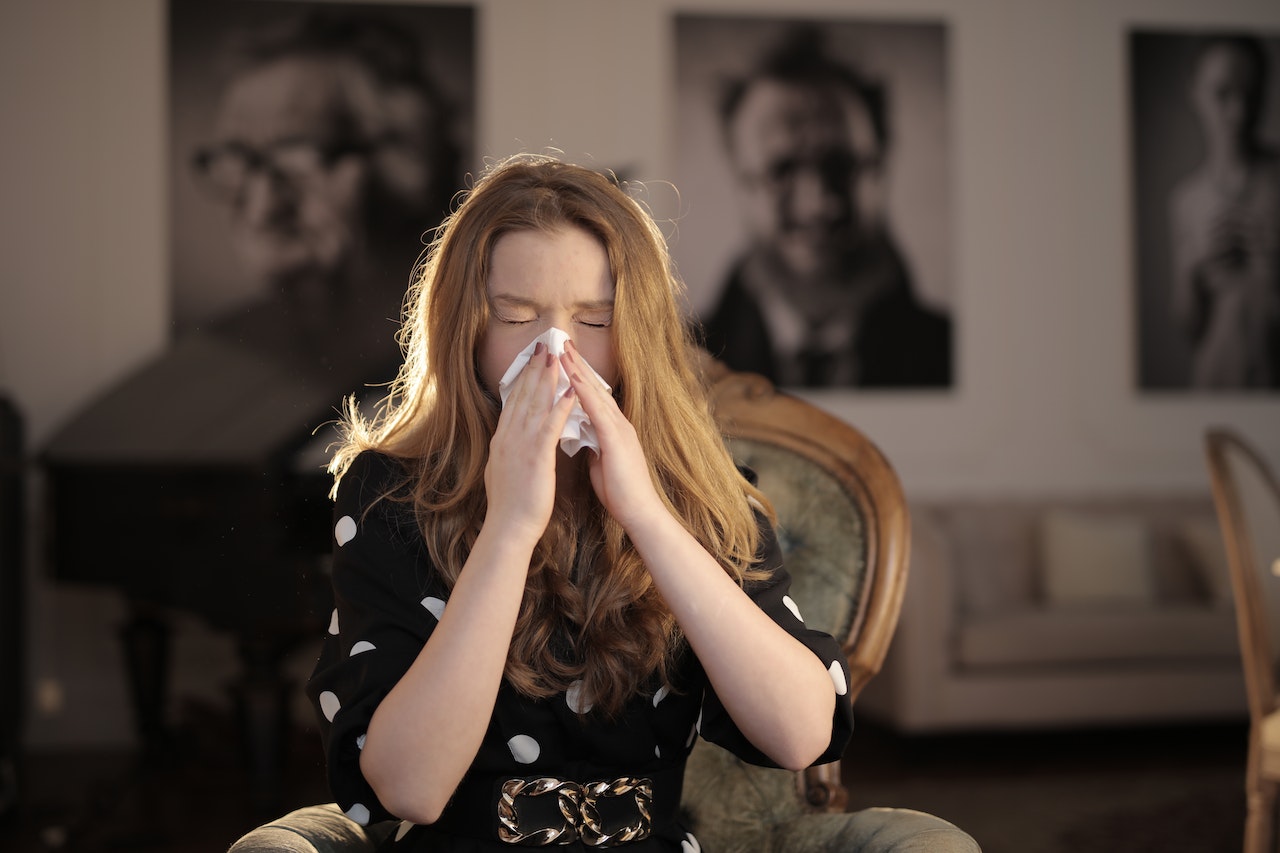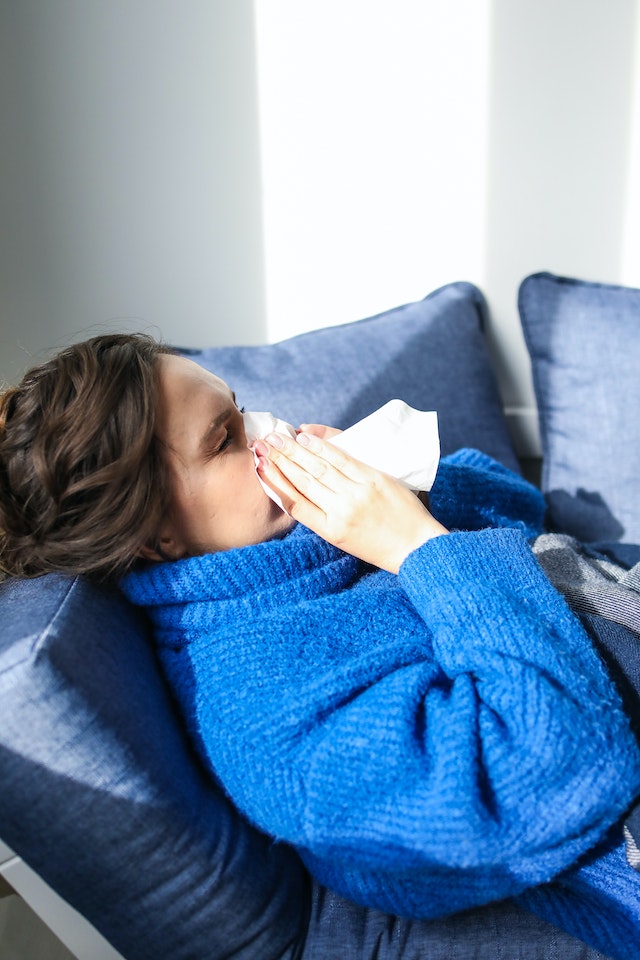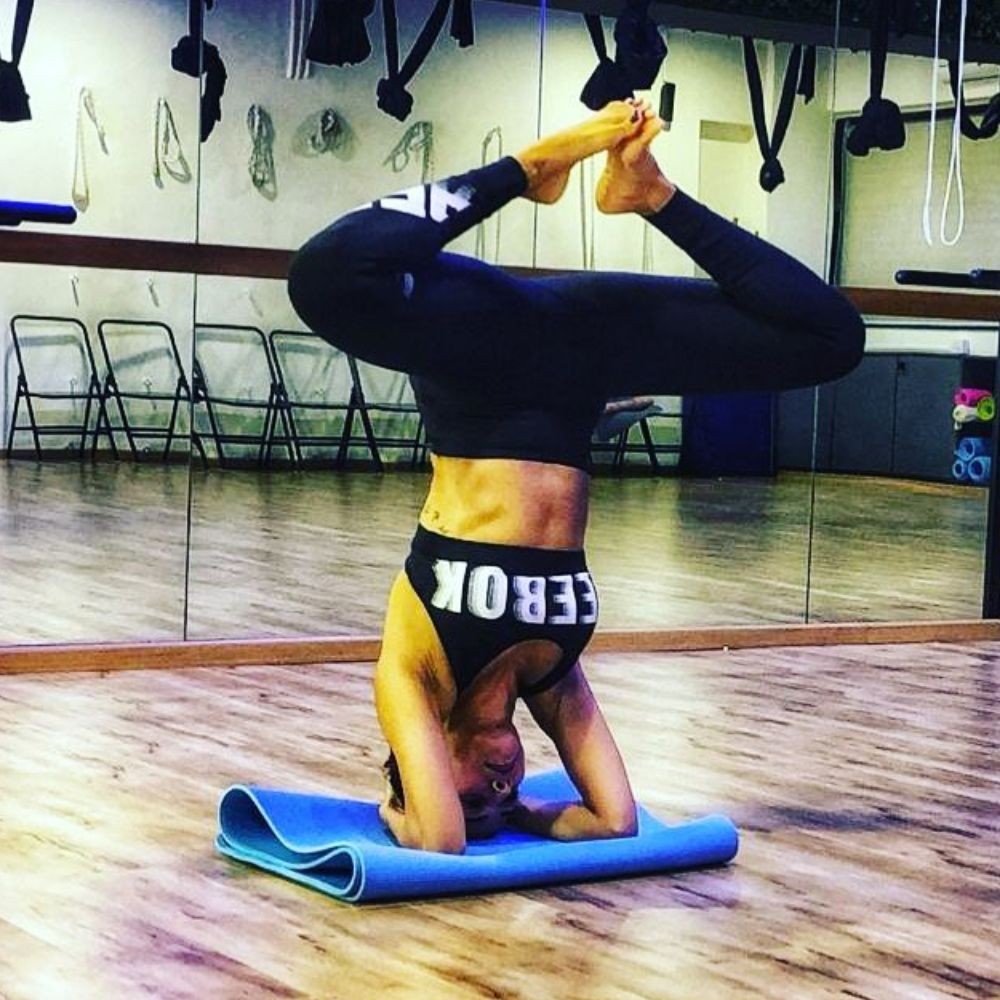How to Make Yourself Sneeze: 10 Ways to Relieve a Stuffy Nose
Sneezing makes your body clean and prevents diseases. Read on to know how to make yourself sneeze when something is stuck in your nose or irritating your throat.

The nose is a part of the body that is constantly exposed. Because you take in air from the nose, there are chances that irritants like dust and pollen may enter your system. But the nose has a defense mechanism known as a sneeze. A sudden sneeze can startle anyone. It often comes without warning and leaves you in a state of shock. Most people sneeze without effort; usually, because of a foreign irritant, you may want to sneeze on purpose. But how to make yourself sneeze without being ill? You can try one or more of the many methods discussed in this article.
What Causes a Sneeze?

A sneeze is a sudden, forceful throwing out of air from the nose and mouth that could irritate the nasal passages. Sneezing is a reflex action that helps to clear the nasal passages of irritants, such as dust, pollen, or mucus. The trigeminal nerve controls the sneeze reflex, a major nerve that supplies the face and head (1). The sneeze reflex typically consists of three phases:
- Inhalation: The first phase of a sneeze is inhalation when you take a deep breath. This part is the involuntary action your body does. Dust particles can travel through your nose with every inhalation and irritate.
- Expiration: The second phase is expiration when you forcefully expel air from your nose and mouth. This part can be very loud for some people, while others sneeze in silence. You must remember, however, not to make yourself sneeze or hold your sneeze in.
- Relaxation: The third phase is when your muscles relax, and the sneeze is over. Your muscles may relax after the first sneeze if the trigger is gone. But some people sneeze repeatedly and can even have headaches.
Many different things can induce sneezing. Here are some of the obvious causes:
1. Allergies
Allergies are common in today's world and are the most common cause of sneezing. When you come into contact with an allergen, such as pollen, dust, or pet dander, your body releases histamines. These histamines cause your body to react, leading to sneezing, coughing, and a runny nose. Sneezing is a natural phenomenon that lets your body throw out any foreign objects (2).
2. Foreign Objects in the Nose
An unwanted object, such as food or dust, can irritate your nasal passages and cause you to sneeze. When something like this is stuck in your nose, you may have the urge to sneeze but can’t (2).
3. Sinus Infections
Sinus infections are another common cause of sneezing. When your sinuses become infected, they can become swollen and filled with mucus. It can irritate your nasal passages and cause you to sneeze. You may also feel a constant nasal drip at the back of your throat (2).
4. Common Cold

The common cold is also a major cause of sneezing. When you have a cold, your body produces more mucus than usual. This mucus can irritate your nasal passages and cause you to sneeze (2). The change in temperature affects the muscles and nerves, causing sneezing. When you have a cold, you won't even have to think, “How to make yourself sneeze ?'' It will happen automatically.
5. Stimulation of the Trigeminal Nerve
The trigeminal nerve is a major nerve that supplies the face and head. If this nerve is stimulated, it can cause you to sneeze. It can happen if you have a bright light shined in your eyes, something tickling your nose, or a sudden temperature change. Some people may have diseases of this nerve and hence have frequent sneezing episodes (1).
6. Meningitis
Meningitis is a bacterial infection that affects the meninges. It is the membrane surrounding the brain and spinal cord. Meningitis can cause several symptoms, including fever, headache, stiff neck, and sneezing (3).
7. Encephalitis
Encephalitis is a disease that causes inflammation of the brain tissue. Encephalitis can cause several symptoms, including fever, headache, stiff neck, and sneezing. Any other form of illness can also cause sneezing (3).
8. Brain Tumors
Brain tumors can sometimes cause sneezing as a symptom. It is mainly because the body considers it a foreign object, and it triggers the nerves (3).
How to Make Myself Sneeze?

If you are looking for the answer to the question, how to make yourself sneeze? Remember that sneezing is not pleasant, but it safeguards the body from foreign objects. Sneezing is the body’s automatic response to protect itself. The important question here is why would someone want to make themselves sneeze. There are a few reasons why someone might want to make themselves sneeze.
- To Clear the Nose: If something irritates the nose, such as dust, pollen, or a foreign object, sneezing can help clear it away. You may try and blow out from one nose while keeping the other covered. It will help in nerve stimulation, inducing sneezing.
- To Wake Themselves up: Sometimes, a good sneeze can be just the thing to get someone out of a groggy state. The days you like never waking up are the best days to make yourself sneeze.
- To Relieve Pressure in the Head: Sometimes, a sneeze can help to relieve pressure in the head, such as when someone has a cold or allergies.
- To Impress Their Friends: Let's be honest; sometimes, people just want to make themselves sneeze because it's fun. The louder the sneeze, the better it is.
When something irritates the nasal passages, such as dust, pollen, or a foreign object, the trigeminal nerve sends signals to the brain that triggers a sneeze (4). The sneeze helps to clear the irritant from the nose and protect the body from infection.
There are a few ways to force yourself to sneeze. You can add them to the things that make you sneeze list:
1. Look At a Bright Light
The trigeminal nerve, which is responsible for sneezing, is also responsible for the reflex that occurs when you look at a bright light. This is the reason why people often sneeze when they step outside on a sunny day (5).
2. Tap Your Upper Lip
There is a small area on your upper lip called the philtrum, which is also sensitive to the trigeminal nerve. This nerve is the answer to the question, “How do you make yourself sneeze?” (5).
3. Wiggle Your Nose
The inside of your nose is also sensitive to the trigeminal nerve. Wiggling your nose can sometimes irritate it enough to trigger a sneeze (5).
4. Hold Your Breath
When you hold your breath, the air pressure in your lungs builds up. It can sometimes irritate the lining of your nose and trigger a sneeze (5).
5. Eat Something Spicy

How to sneeze when you can't? Eat something spicy. Spices can irritate the lining of your nose and throat, sometimes triggering a sneeze. Spicy food often rests on the lips and triggers the nerves on the upper lip. You can also feel it on the roof of your mouth, which is another place of the nerve ending (5).
6. Rub Your Eyes
Rubbing your eyes can sometimes irritate the lining of your nose and trigger a sneeze. The trigeminal nerves have endings behind the eyes, and rubbing them vigorously will result in seeing.
7. Sniff a Strong Odor
Sniffing a strong odor, such as perfume can sometimes irritate the lining of your nose and trigger a sneeze (5). If you sneeze easily, stay away from strong odors and try to keep your living space ventilated. Use this technique to answer the question: how to make yourself sneeze?
8. Tickle Your Nose
Putting a feather up your nose — this is a classic way to make yourself sneeze. However, not pushing the feather too far up your nose is important, as this could cause injury (5).
9. Pluck Your Eyebrow
Tweeze your eyebrows or pluck your nose hair. It can also irritate the skin in your nasal passages and cause a sneeze. Hair is deep-seated in the skin and has nerve endings near the roots. When you pluck out your nose hair, it irritates the nerves and makes you sneeze (5).
10. Stimulate the Nerve
Massage the roof of your mouth. It can stimulate the trigeminal nerve and trigger a sneeze. You can also do this unconsciously and will be surprised by the following sneeze (5).
11. Rub Your Nose
You can induce sneezing by rubbing your nose or squeezing the bridge of your nose. It can also irritate the skin in the nasal passages and cause a sneeze. It may take time to do this step, but if you are determined to sneeze, try it (5).
It is important to note that these methods may not work for everyone. If you are trying to make yourself sneeze for a medical reason, such as to clear your nasal passages, it is best to talk to your doctor.
Conclusion
Sneezing is largely an involuntary activity. The body’s defense system is trying to safeguard it against external objects. However, sometimes you may need to make yourself sneeze on purpose. But the question is, how do you make yourself sneeze? It may not be as easy as you think. Triggering a nerve in the body takes time and patience. You must also know how to make it stop so that your sneeze can go away on time. Try the many methods mentioned above to make yourself sneeze but remember to only do it when necessary. If you have something stuck in your nose, consult a doctor before stressing yourself out with sneezes.
ALSO READ: Tom Holland’s Workout Routine to Get a Shredded Athletic Body





 JOIN OUR WHATSAPP CHANNEL
JOIN OUR WHATSAPP CHANNEL














































































